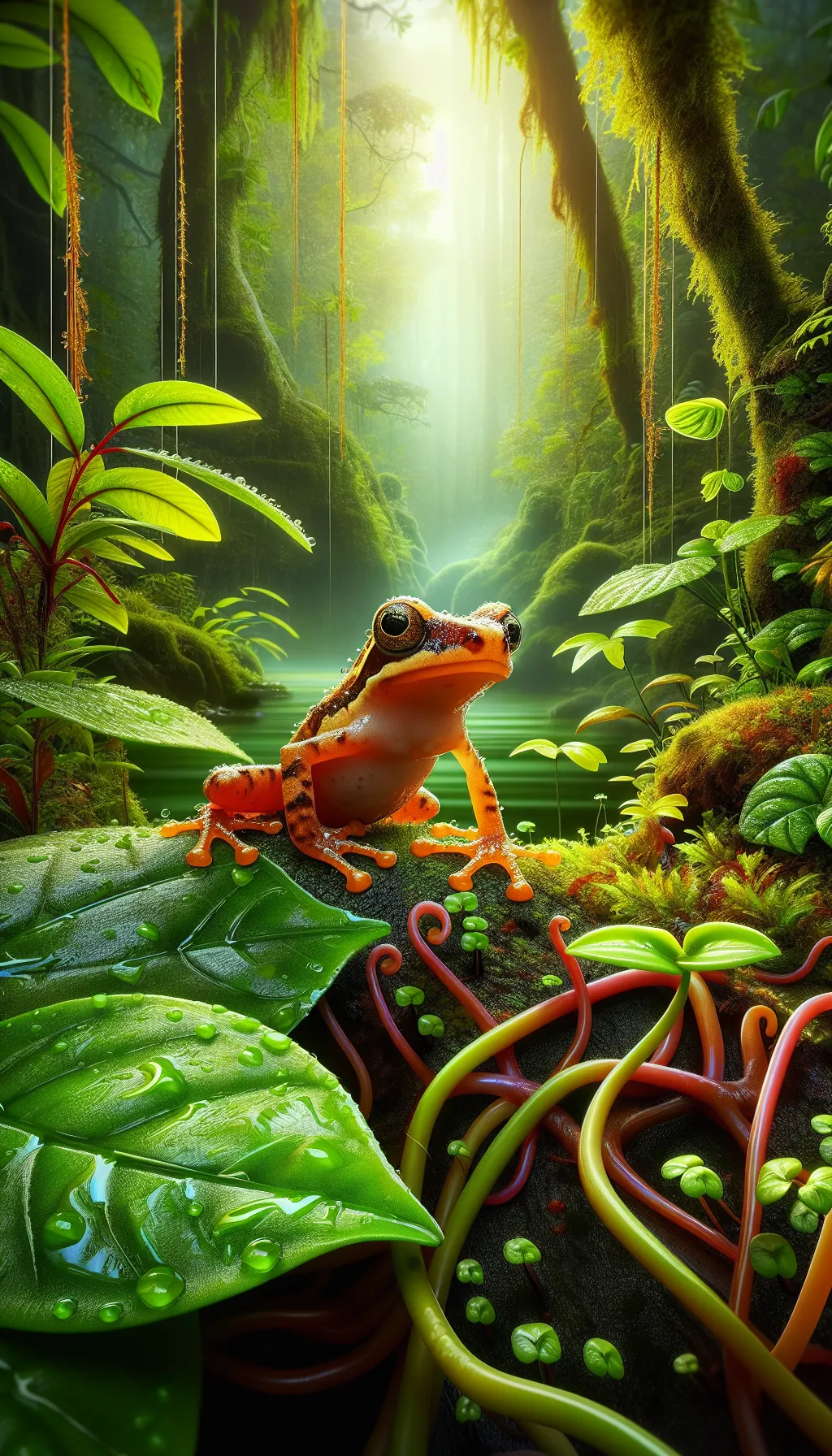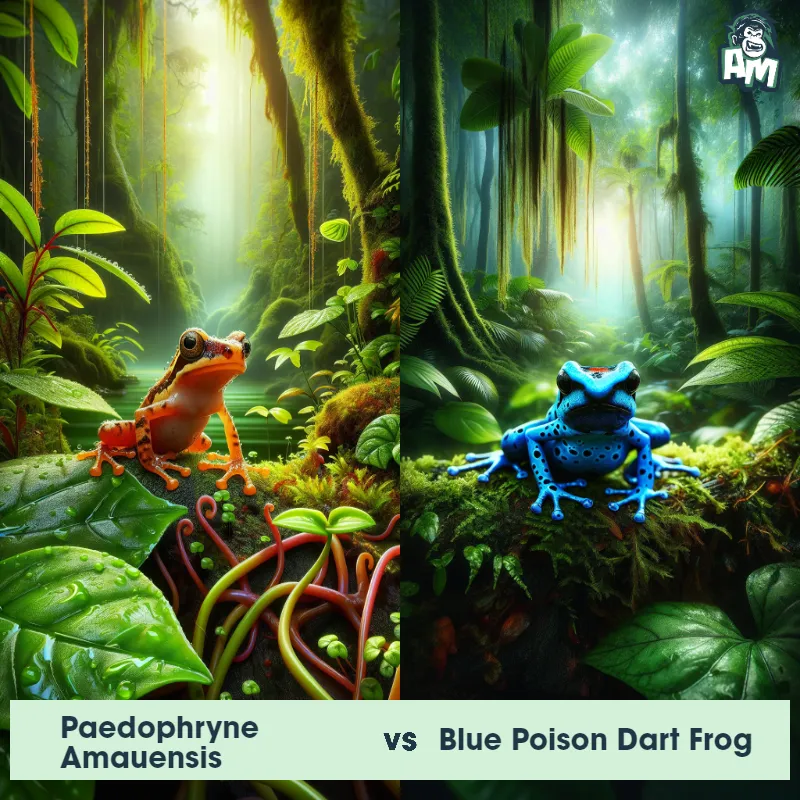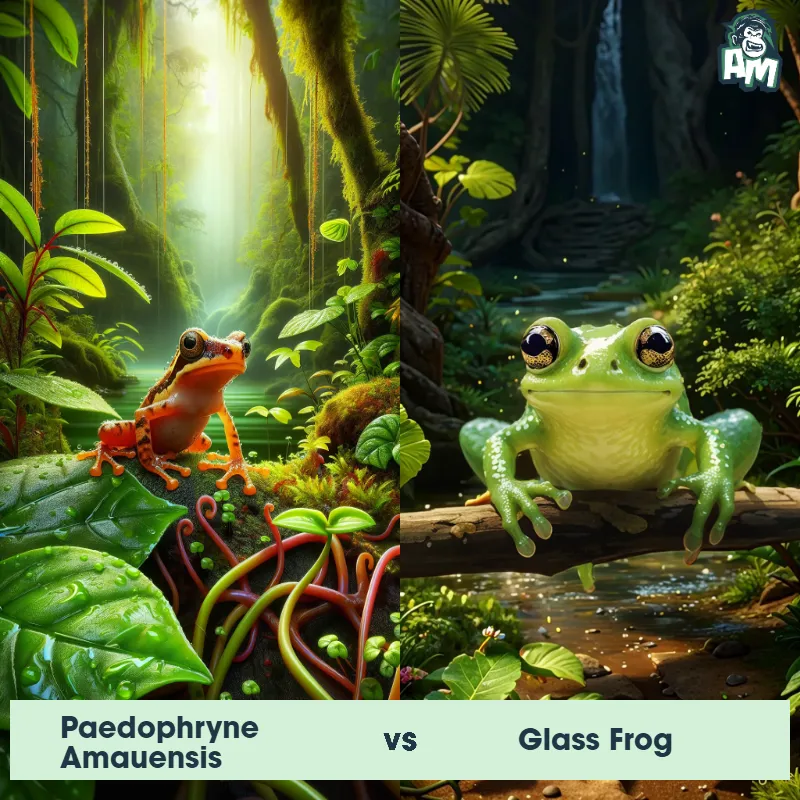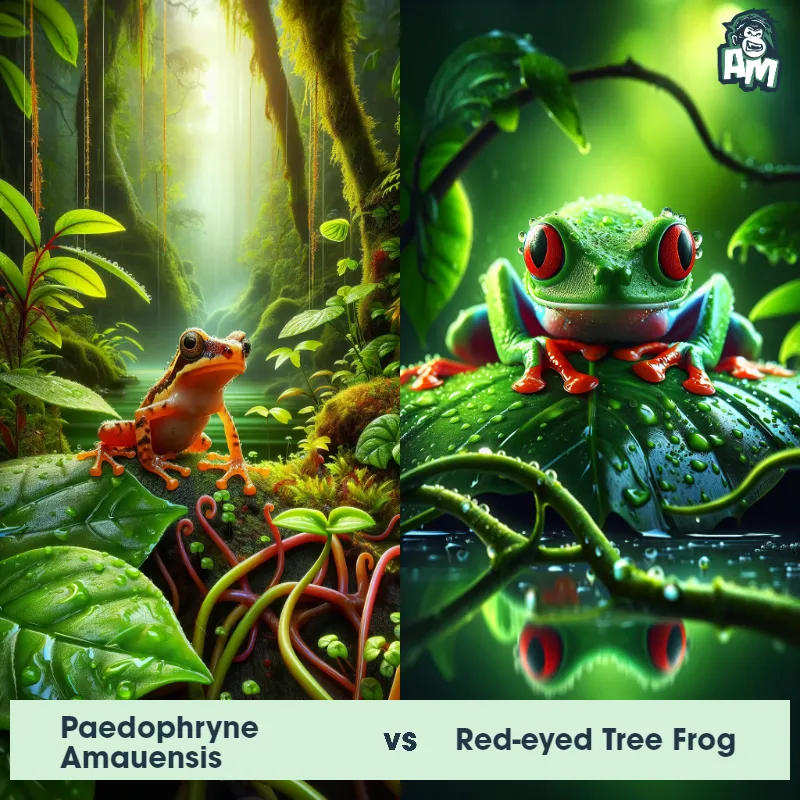The Paedophryne Amauensis
The Paedophryne Amauensis, also known as the Amau Forest Microhylid frog, is a species of frog found in the mountains of Papua New Guinea. This tiny frog holds the title of the world's smallest vertebrate, measuring only around 7.7 mm in length. It has a brownish-grey hue with darker markings on its body, helping it blend into the forest floor.

| Paedophryne Amauensis | |
|---|---|
| Size | 7.7 mm (0.30 inches) |
| Weight | 0.30 grams (0.01 ounces) |
| Speed | 5mph (8km/h) |
| Key Strength | Speed and agility in escaping predators |
| Biggest Weakness | Small size makes it vulnerable |
| Scientific Name | Paedophryne Amauensis |
| Family | Microhylidae |
| Habitat | Leaf litter on the forest floor |
| Geography | Papua New Guinea |
| Diet | Ants, mites, and other small invertebrates |
| Lifespan | 0.5 year - 1 year |

The Paedophryne Amauensis
The Paedophryne Amauensis, also known as the Amau Forest Microhylid frog, is a species of frog found in the mountains of Papua New Guinea. This tiny frog holds the title of the world's smallest vertebrate, measuring only around 7.7 mm in length. It has a brownish-grey hue with darker markings on its body, helping it blend into the forest floor.
Fun Fact: The Paedophryne Amauensis was discovered in 2009 by scientists in Papua New Guinea during an expedition, showcasing the incredible diversity of life found in the region.
| Paedophryne Amauensis | |
|---|---|
| Size | 7.7 mm (0.30 inches) |
| Weight | 0.30 grams (0.01 ounces) |
| Speed | 5mph (8km/h) |
| Key Strength | Speed and agility in escaping predators |
| Biggest Weakness | Small size makes it vulnerable |
| Scientific Name | Paedophryne Amauensis |
| Family | Microhylidae |
| Habitat | Leaf litter on the forest floor |
| Geography | Papua New Guinea |
| Diet | Ants, mites, and other small invertebrates |
| Lifespan | 0.5 year - 1 year |
Paedophryne Amauensis Matchups
We use AI to simulate matchups between the Paedophryne Amauensis and other animals. Our simulation considers size, strength, and natural predatory behaviors to determine the most likely outcome.
Paedophryne Amauensis: Diet, Predators, Aggression, and Defensive Behaviors
What do Paedophryne Amauensis eat?
Paedophryne Amauensis primarily feed on small invertebrates such as ants, mites, and other tiny arthropods found in the leaf litter of the tropical rainforests of Papua New Guinea. Their diet also includes termites, springtails, and other small insects that they can catch with their quick reflexes.
Do Paedophryne Amauensis have any predators?
Due to their extremely small size and cryptic coloration, Paedophryne Amauensis are at risk of predation by various organisms in their natural habitat. Predators of Paedophryne Amauensis may include larger frogs, reptiles, birds, and even spiders that are able to detect and capture these tiny amphibians.
Are Paedophryne Amauensis aggressive?
Paedophryne Amauensis are not known to be aggressive towards other animals or humans. They are primarily solitary and secretive creatures that prefer to stay hidden in the leaf litter or under vegetation. When threatened, they are more likely to try and escape rather than engage in aggression.
Do Paedophryne Amauensis fight?
Paedophryne Amauensis do not engage in physical confrontations with each other or with other animals. Their small size and limited mobility make them ill-suited for fighting. Instead, they rely on camouflage and hiding to avoid conflicts and predators.
How do Paedophryne Amauensis defend themselves?
Paedophryne Amauensis rely on their tiny size and cryptic coloration to defend themselves against predators. They are skilled at blending into their environment and remaining unnoticed. When threatened, they may freeze in place or quickly hop away to escape danger. Their ability to hide in small crevices and remain motionless helps them avoid detection.
What is the biggest weakness of Paedophryne Amauensis in a fight?
The small size of Paedophryne Amauensis is their biggest weakness in a fight. Their diminutive stature makes them vulnerable to larger predators that can easily spot and capture them. Their limited ability to move quickly or defend themselves physically puts them at a disadvantage in confrontations with larger, more aggressive animals.
Fun Fact: Despite its minuscule size, the Amau Forest Microhylid frog has a loud call that can be heard echoing through the forest, helping it communicate with potential mates.
Fun Fact: Paedophryne Amauensis has unique adaptations to its environment, including specially shaped toe pads that allow it to cling to wet leaves in the rainforest.














